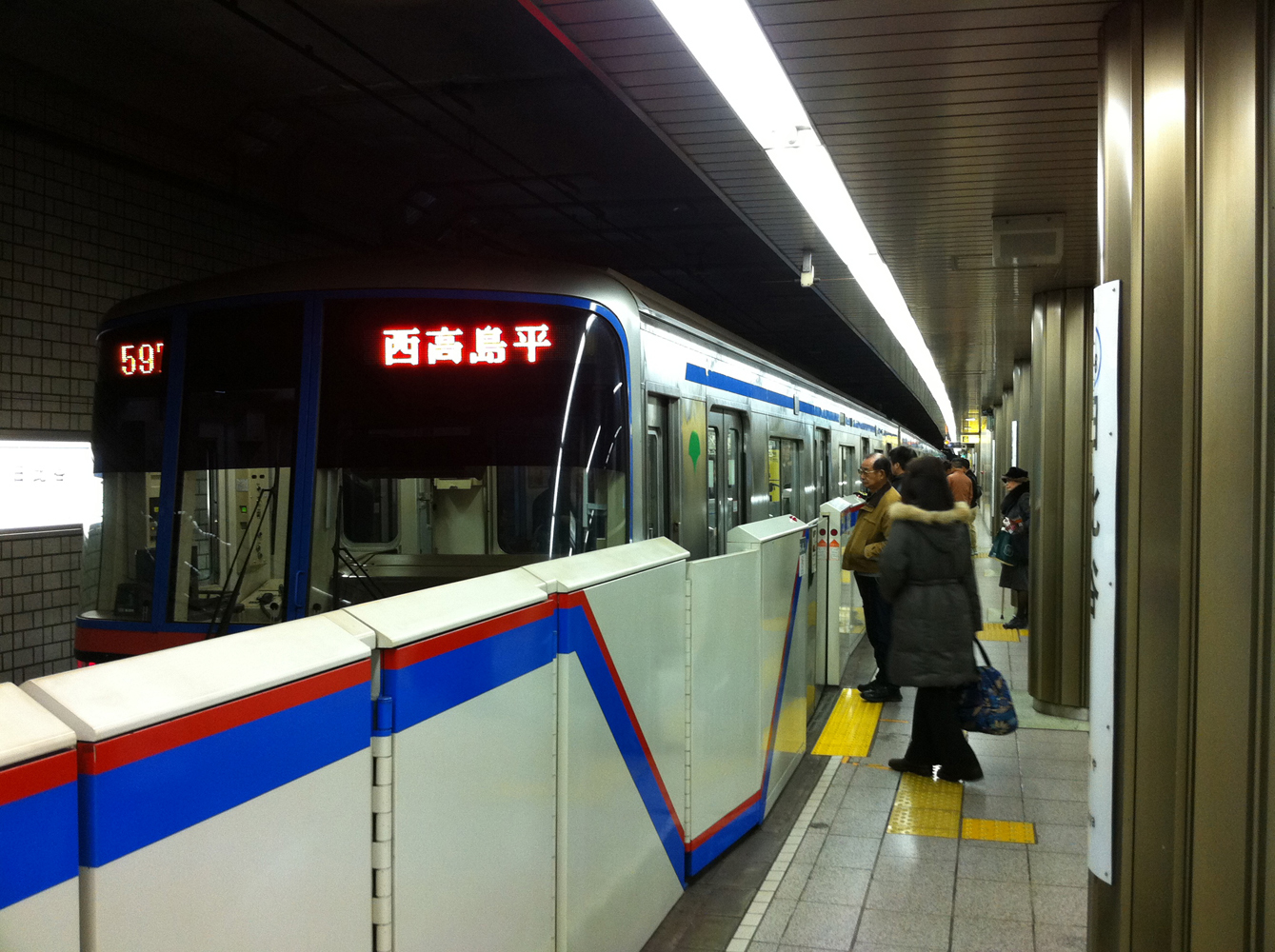Lost phone sparks international friendship
Sign up now: Get insights on Asia's fast-moving developments

A Toei subway train in Japan.
ST FILE PHOTO
Follow topic:
JAKARTA (JAPAN NEWS/ASIA NEWS NETWORK) - An old train shipped from Japan to Indonesia connected two men by chance, thanks to a smartphone lost on the train.
Shota Noda, 21, a university student from Zama, Kanagawa Prefecture, lost his smartphone on the train while it was in operation in Japan.
The phone was found about 5,800 kilometres away in Jakarta and returned to Noda this summer, seven months after he lost it. Since then, Noda has promoted his friendship with Syahri Rochmat, 24, the Indonesian railroad employee who found the phone.
At a Jakarta port in late December last year, Rochmat, an engineer of the capital's metropolitan railway company PT. KAI Commuter Jabodetabek, came across the smartphone when he was checking and cleaning the used train shipped from Japan before it runs in Indonesia.
The train used to operate on the JR Nanbu Line connecting Kawasaki Station with Tachikawa Station in Tokyo. When Rochmat removed a bench seat to check inside, he saw a smartphone fall to the floor. It had apparently been stuck between the seat back and the bench.
He also found a student identification card kept in the pocket of the smartphone case. It must have belonged to a Japanese person since the train came from Japan, but Rochmat could not read Japanese, so he posted a thumbnail photo of the ID card on Twitter asking tweeters to help find the man.
Rochmat is a Japanese railway enthusiast, even making T-shirts with prints of Japanese trains and wearing them at his workplace. He also has Japanese friends living in Asia. He tweeted in Indonesian, and his fellow rail fanatics found his tweet. One of them contacted the university Noda attends.
MESSAGE FROM AFAR
On Jan 11, Noda, a senior at Yokohama National University, received a message in English on his Facebook page. His photo on the student identification card was attached. The message asked if the card belonged to him. Noda quickly understood what the message meant.
He had lost his smartphone and identification card on a Nanbu Line train on Dec 5, 2015. He had called the train operator daily and had even turned in a report on the lost items at a police station, but all in vain.
Noda had given up, asking the university to reissue his ID card while using an old smartphone.
Only later did Noda discover why his phone was found in Indonesia.
According to East Japan Railway Co.'s Yokohama Branch Office, last year the company sold 120 used 205 series train cars to Indonesia and the smartphone was found on one of those cars. The train car Noda had been riding in on Dec 5 was being prepared for shipment to Indonesia the very next day for its second life.
IN-PERSON PICKUP
Noda tried to ask Rochmat to send the smartphone back via international mail, but soon gave up because he could not clearly convey his request translated by online machine translation.
He decided to go to Jakarta to pick up the phone directly as he had finished job hunting in June.
On July 27, the two met at a station in Jakarta for the first time and Noda received his smartphone and ID card from Rochmat. They took a picture together using the "miracle smartphone" to commemorate the meeting.
In August, Rochmat visited Tokyo and Noda took him around the city. In a twist of fate, Rochmat accidentally left his bag of souvenirs on a train's overhead rack, but the bag was sent to a lost and found office of a nearby station, Rochmat said.
The friendship between Rochmat and Noda became an internet topic. Noda has even received friend requests from a number of Indonesian railway fans on his Facebook page."This smartphone and new friendship are precious to me," Noda said.
REUSING TRAINS GLOBALLY
Japanese railway companies have shipped used trains to countries around the world at the time of model changes to higher-end cars.
Indonesia used to import new trains. However, the country suffered financial difficulty caused by an economic crisis in the late 1990s and switched to importing used train cars from Japan.
Since 2009, PT. KAI Commuter Jabodetabek has received 844 train cars that used to operate on the Nanbu Line, the Toei subway lines and other lines, with or without having to provide compensation.
Meanwhile, old trains that used to operate on the Tokyo Metro's Marunouchi subway line have been running on a subway line in Buenos Aires."Japanese trains are highly evaluated globally in terms of their safety and energy-saving capability," an official of the Land, Infrastructure, Transport and Tourism Ministry said.
The Japanese government has positioned the export of infrastructure as a pillar of its growth strategy. The amount of orders that Japan received from overseas in 2014 was about 19 trillion yen (S$264 billion) and the government aims to boost the figure to about 30 trillion yen in 2020. Of that amount, 7 trillion yen is expected to be procured from the transportation field.

